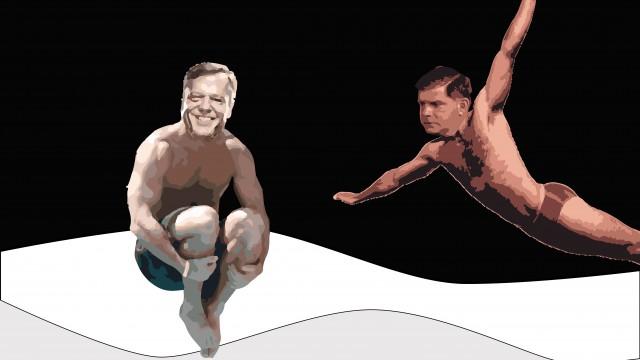
Mayor Martin J. Walsh, WCAS ’09, hasn’t been happy lately. Now in his second year as Mayor of Boston, Walsh has been forced to confront a wicked monster that has been tormenting the city over the past two months: snow. But rather than melt away, the problems across the city have accumulated to the point where Bostonians are looking for someone to blame, and now Walsh’s political career could be the next thing to be buried beneath the snow.
Boston is no stranger to the white stuff. But lately, the historic snowfall has gotten so absurd that rather than wallow in our winter woes, some Bostonians decided to take a different approach.
Last week, a group of Boston daredevils recorded videos of themselves jumping out of roofs and windows into snowbanks—many of the snow “divers” were barely even clothed while performing the frosty feat. The group started a statewide movement on social media, known as the #BostonBlizzardChallenge.
Walsh immediately criticized the movement, saying Boston wasn’t Loon Mountain—a popular ski area in New Hampshire—and pleaded that everyone “Stop the nonsense right now.”
Meanwhile in Washington D.C., Massachusetts Governor Charlie Baker sat at the President of the United States’ table during a black-tie event at the White House, describing Boston’s winter troubles to President Barack Obama. The situation has escalated to the point where Baker is lobbying for federal aid to help Massachusetts recover from the state’s recent massive snowfalls. To the President and the rest of Capitol Hill, Baker is now known, simply, as the governor of snow.
After four major snowstorms in three weeks, the white monster has wrenched local budgets and shut down the region’s public transit system, leaving workers stranded and businesses to suffer the consequences. Until January, the winter was unusually tame, and it appeared that we could make it through the season in one piece.
But after three weeks of destruction, the issue of managing an unprecedented 90.8 inches of snow has been dumped on the desks of city officials. If the snow continues to fall and city is forced to shut down once again, Walsh and Baker might be the next to take a leap out of their office windows.
Immediately, when the first storm hit the city, Baker and Walsh were thrown into crisis mode, set to prove to Bostonians that they were ready to be the new leaders that the city and state needed. Walsh issued parking bans across the city, but roads were miserable and not cleaned to the curb.
As the snow piled up and refused to melt, many usual two-way streets were forced to shut down to one lane—often putting drivers up against each other. As the T began to collapse, Baker was put in the crosshairs. The public was furious, and looked up the ladder for retribution.
To make matters worse for the governor, MBTA General Manager Beverly Scott also abruptly resigned two weeks ago, and the mess was publicly dropped on Baker’s desk. All of this prompted streets to be a nightmare, and commuters were forced to take matters into their own hands and be delayed or miss work altogether.
As leaders of the snow removal efforts, Walsh and Baker are easy to blame for the mess. The rookies were both thrown right in the middle of the issue, like a closing pitcher brought in to make one out and save a baseball game after sitting in the bullpen for the previous 8 2/3 innings.
We cannot blame them for being forced to manage an unpredictable disaster. How could they have planned to budget for an unprecedented 9 feet of snow? How can we blame Baker for an underfunded transportation system that has been a concern for years?
For now, Walsh and Baker are working to fix the nightmare. Walsh has already spent over $35 million on snow removal, and there are still plows on the streets. Baker is also currently pushing for transit improvements that have been in the works for years, but are not at the forefront of the city’s concerns.
But the problem is that we are still looking to blame someone—or something—for the snow. We want someone’s head on the guillotine when really there is no one to blame at all. Instead of pointing fingers, Bostonians should realize that this was something nobody could have planned for, and instead should work together to clean up the mess.
Featured Image by Francisco Ruela / Heights Graphic